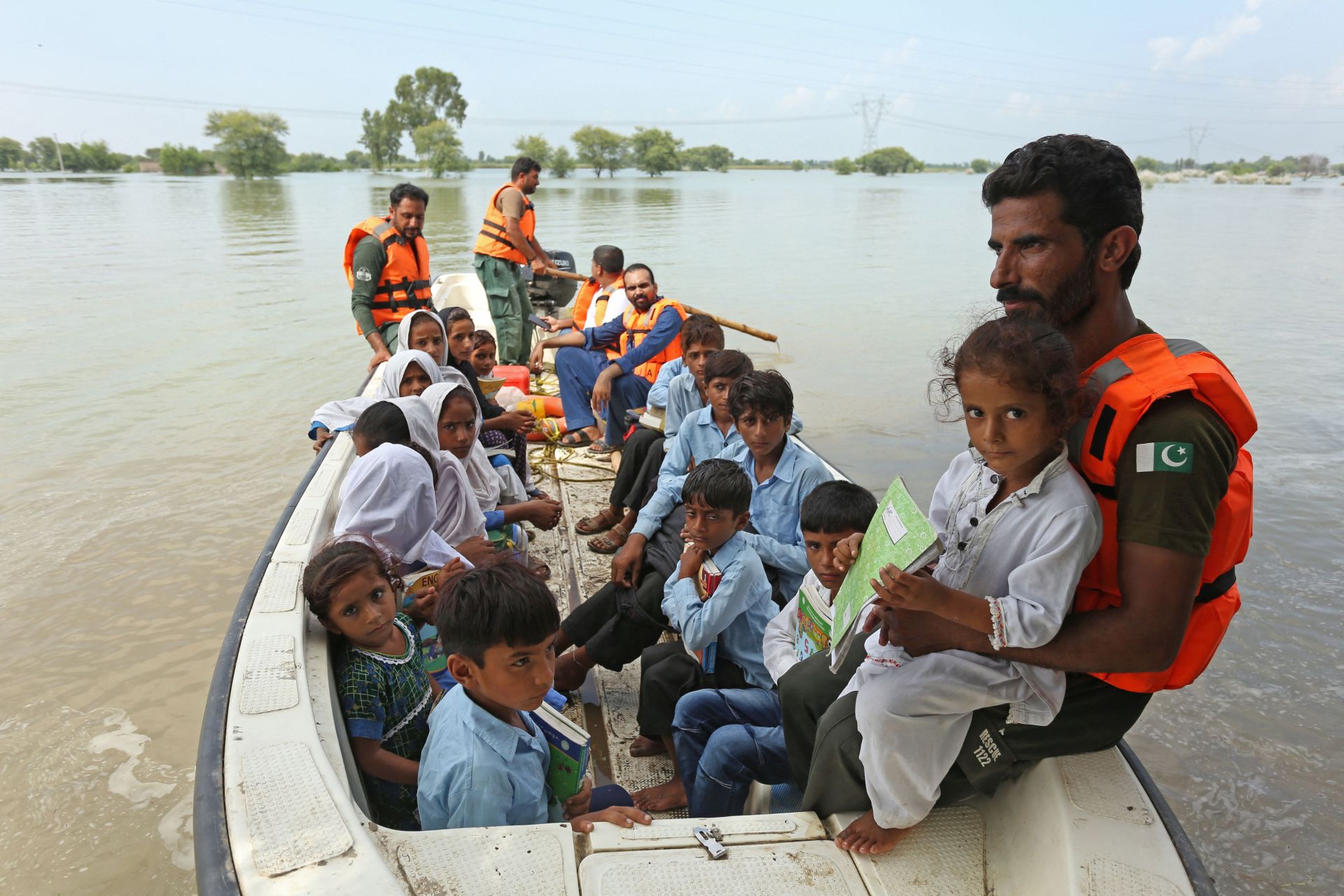Flash flooding has killed over 1,100 people in Pakistan since mid-June amid a brutal monsoon season, marking the world's deadliest flooding over the last five years. The country is currently in a state of emergency as it is trying to aid over 33 million affected people and counting.
The hardest-hit province, Sindh, has seen almost eight times more rainfall in the month of August than the region's average. Across the country, floodwaters have inflicted an estimated $10 billion worth of infrastructure damage, destroying about 130 bridges and damaging over 300,000 homes.
Yasrab Shah, the director of a U.K.-based charity currently providing aid to people in Pakistan impacted by the floods, told the BBC the crisis could be measured "on a biblical scale."
"It's that level of devastation," he added.
Horrifying footage from S. #Pakistan today of entire building washed away by floods. Over 935 people killed, more than 33 million affected, worst natural disaster for country in decades: pic.twitter.com/aO6ZMlQycf
— Joyce Karam (@Joyce_Karam) August 26, 2022
What caused the flooding?
Although monsoon season happens every year from July to mid-September in Pakistan, this current season is dumping unprecedented amounts of rain onto the country, causing deadly flash flooding and landslides.
The nearby Indian Ocean, the source of the monsoon rains, is warming up at an even faster rate than most other areas of the world, largely due to human burning of dirty energy sources like coal, oil, and gas. As the planet heats up, the air can hold more moisture, meaning that rain events become more intense, frequent, and devastating, as is evident from the current monsoon season.
On average, Pakistan encounters three or four periods of monsoon rains each season, but the country is currently slammed with its eighth spell of torrential rainfall this summer, CBS News reports.
Increased monsoon rainfall isn't the only factor behind the devastating flooding. Pakistan's federal minister for climate change, Sherry Rehman, explained that hotter temperatures have caused the country's many mountainous glaciers to melt at a faster rate than usual, contributing to the problem.
"We could well have one-fourth or one-third of Pakistan underwater," Rehman told CBS News.
Pakistan 🇵🇰 flood disaster
— Scott Duncan (@ScottDuncanWX) August 27, 2022
National emergency declared. Some officials are comparing monsoonal rains this year to 2010 - the worst flood year on record where nearly 20% of the country became submerged. This is impacting over 30,000,000 people right now.pic.twitter.com/VjZVHVEZpm
How you can help
You can help the people of Pakistan by donating to relief organizations, which will be providing displaced families with food and essential items necessary to survive. Some organizations that you could donate to include the International Rescue Committee, the Pakistan Red Crescent Society, and Islamic Relief Worldwide.
Another important action you can take is openly talking about the overheating of our planet with your friends and family. Don't shy away from conversations about the issues impacting our communities, and inform yourself about the tech solutions and scientific advances being made every day in the fight to protect our planet. Here are some tips on how to start these discussions.
A child's cry, and prayer, for #Pakistan.
— Khaled Beydoun (@KhaledBeydoun) August 28, 2022
Heartbreaking. pic.twitter.com/TaiPctx2Tf
Raising awareness about our changing climate and talking about effective solutions will be crucial in preventing future devastating extreme weather events in our communities caused by the Earth's overheating.
Follow The Cool Down on Instagram and TikTok.








